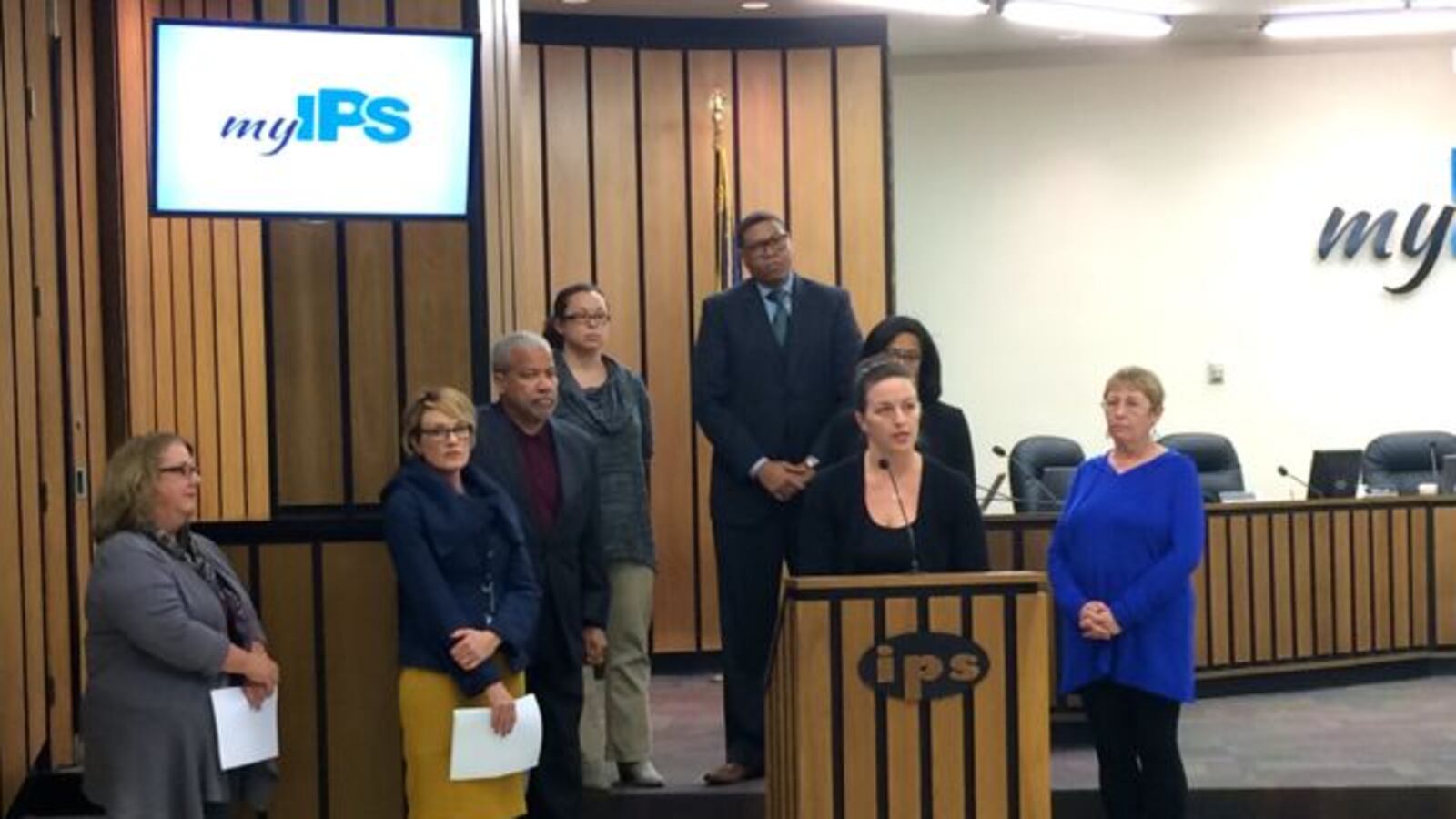It might seem obvious, but the Indianapolis Public School Board made it official, again, tonight: it expects schools to have more freedom but to be held to high expectations or face consequences.
That’s pretty much what the board members all promised when they were running for office last year or in 2012.
Tonight’s vote directed Superintendent Lewis Ferebee to create a strategic plan that gives school principals more authority to make decisions, allow schools more control over their budgets and diminishes the influence of central office administrators.
Those are the board’s “core beliefs,” board members told Ferebee.
“Dr. Ferebee needs to understand what our expectations are and produce a strategic plan that meets those expectations,” board member Mary Ann Sullivan said. “If there’s something in there that is inconsistent, it’s not a strategic plan that we’re going to sign off on.”
Sullivan described what she called “radical language” from the board that will dictate a district structure of more than 60 schools as “a system of autonomous schools that are held accountable to clear performance metrics.”
Ferebee said he agreed with the approach.
(Read more: Read the school board’s document here)
Even so, it was unclear at today’s briefing how the board’s vote would actually change the district’s decision-making process.
“Is this considered policy of the board or just some feel-goody statement?” asked Amos Brown, who hosts the Amos in the Afternoons radio show on WTLC.
Board member Caitlin Hannon said the policy specifics will come later but she said the board would check itself against its statement of values as it makes future decisions.
“What I really hope is we’re held accountable for these,” Hannon said. “I might kick myself later for saying that.”
Brown also asked why the board crafted such a critical guiding philosophy without gathering public feedback before voting to adopt it.
“You are telling the public tonight … about all these great words about openness and whatever, but the first the public will see this is after you vote on it this evening,” Brown said.
That’s what the last two elections were about, Hannon said.
“I did that for the year and a half that I ran,” said Hannon, who was elected in 2012.
The board’s three newest members — Sullivan, LaNier Echols and Kelly Bentley — last year all promised more school autonomy and choice before defeating by large margins former board members who sometimes questioned that approach.
Sullivan said the public will be able to influence the debate by getting involved as the board builds a strategic plan.
“We never even talked about soliciting input because that wasn’t the purpose of this,” Sullivan said. “We have plenty of opportunities to get public input on everything we do.”


